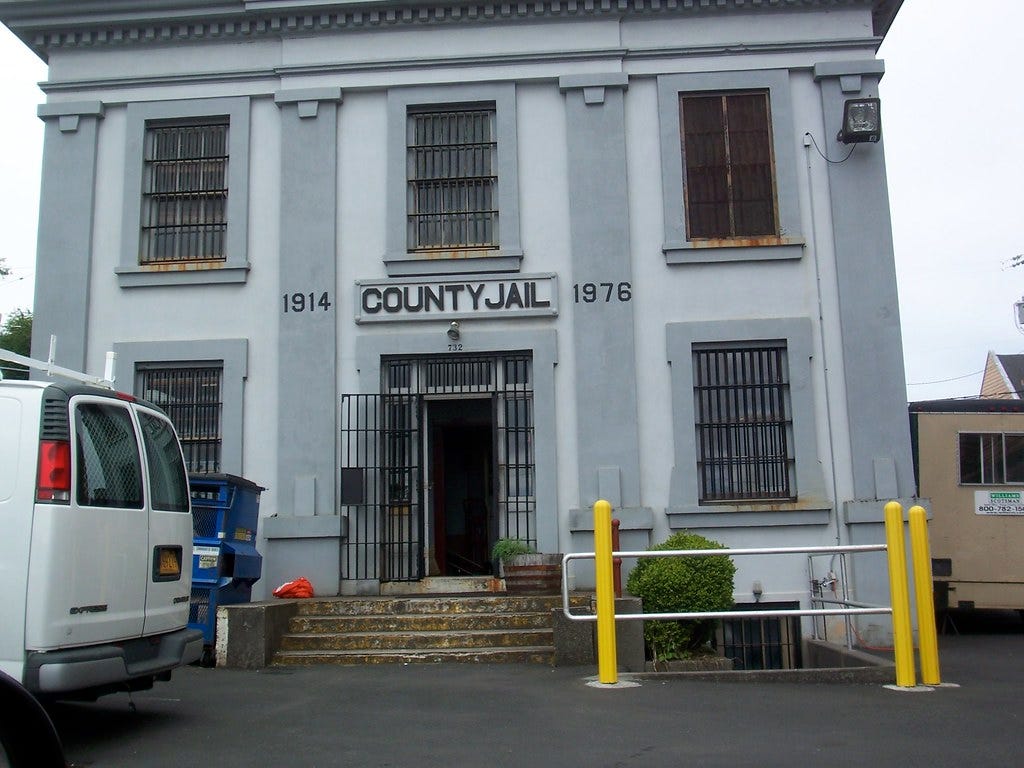To Address Mass Incarceration, Force Prosecutors to Live Within A Budget
Applying hard-headed logic to the use of public resources is a tradition Oregon should be proud of. Oregon should now apply that logic to a new area: prison sentences.

Environmental lawyer, former Sizemore fighter, former Portland City Commissioner, believer in taxing the rich and letting people know where tax dollars go.
One of Oregon’s boldest policy innovations was the prioritization list for health care services under the Oregon Health Plan. As a State Senator and Governor, John Kitzhaber made the case that rather than rationing health care by limiting the number of people who get any at all, we should ration health care by prioritizing health procedures.
Given a limited amount of money, some rationing was inevitable; the question was “what kind?”. Kitzhaber said that “All medical interventions are not of equal value and effectiveness in producing health, and therefore a prioritization process must be established to decide what will be financed with the public resources.” The state literally came up with a long list of procedures, from most valuable to least valuable, and “moved the line” depending on the money available.
Applying hard-headed logic to the use of limited public resources is a tradition Oregon should be proud of. Oregon should now apply that logic to an area where it has never been applied at all: prison sentences.
In the national debate about mass incarceration, a major factor is generally overlooked: prosecutors. They are largely responsible for determining the use of prison sentences and don’t have to live within a budget for those sentences. If a county District Attorney (DA) sends someone to prison – usually as the result of a plea bargain – the state has to pay the cost of imprisonment. As far as the DA is concerned, prison is a free resource.
I can’t think of any other area of public policy that works like this. No other public officials and no other services have a position as privileged as that of DAs and prisons. Librarians have to live within a budget. School principals have to live within a budget. Fire departments have to live within a budget. District attorneys – when it comes to prison space - do not.
And it is axiomatic that when something is free, it tends to be overused. If ice cream were free, you’d see a surge in cholesterol levels. If cigarettes were free, you’d see a surge in lung cancer. It’s no surprise that when prison is “free,” you get mass incarceration.
Sure, laws and rules setting maximum and minimum sentences have an influence on how much money we spend on prisons. But within the broad contours set by those rules, DAs exercise enormous discretion. In his book “Locked In: The True Causes of Mass Incarceration,” Fordham professor John Pfaff pointed out that “[t]here is basically no limit to how prosecutors can use the charges available them to threaten defendants.” They decide what charges to bring. They negotiate the plea bargains.
To give some credit where it is due, the Oregon Legislature, through its “justice reinvestment” program, has tried to create some incentives to save on prison costs by reinvesting prison savings in the counties for other public safety priorities. But it’s not a county-by-county quid pro quo; it’s a system-wide thing. Individual counties don’t get more reinvestment money based on their DA’s limiting his use of prison resources. And if a DA doesn’t really care about anything other than sending people to prison, the existence of that reinvestment pool won’t matter to them.

One logical way for the Legislature to proceed is to start treating counties, for public safety purposes, like they treat school districts: come up with a funding formula and allocate money to each county to be used for the whole suite of public safety programs. Then county commissioners and the DAs would work out how much of that pot of money to use for drug treatment, how much for ex-prisoner re-entry programs, how much for jail, and how much to buy prison space from the state.
A milder form of the idea would be to set a presumptive budget for prison space for each county, but allow counties to exceed it – but, if a county doesn’t use all its presumptive prison money, send the savings back to the county to spend on other public safety programs. Kind of a public safety “kicker.” Some more progressive prosecutors would freely choose to take advantage of that opportunity; in other cases, county commissioners might be able to force them to do so.
But the first thing the Legislature should do is ask John Pfaff to come to Salem and talk about this stuff. I’m proud to say that I’ve been pushing versions of these ideas for many years, before Pfaff’s book came out. But he’s the expert. It could be one of the most interesting and informative hearings the Legislature has ever seen.
*******************************
Send feedback to Steve:
@Novick4PDX
Keep the conversation going:
Facebook (facebook.com/oregonway)
Twitter (@the_oregon_way)
Check out our podcast:


